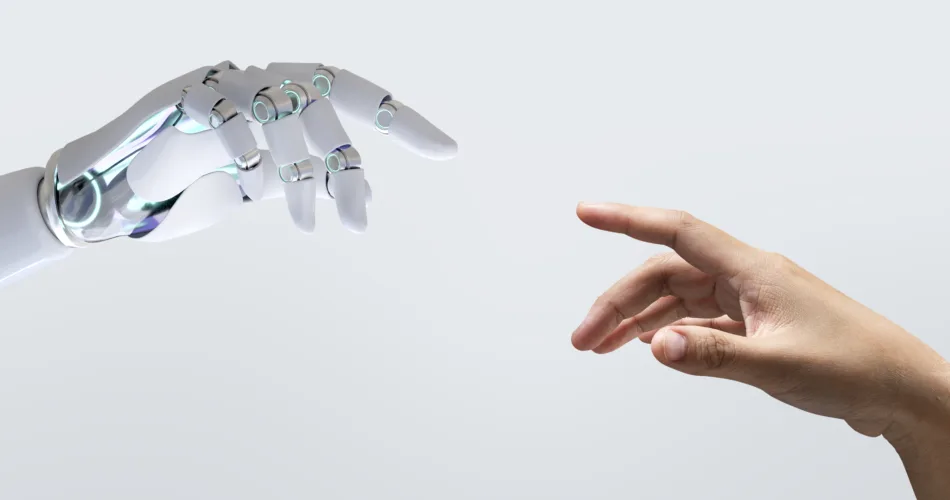Artificial Intelligence (AI) is making a significant impact across various industries, and its influence is only set to grow. From healthcare to transportation, AI is reshaping our daily lives. This progression is exciting, yet it raises important questions regarding employment, privacy, and the role AI will play in our routines.
**AI in Healthcare: Faster, Better Care**

In healthcare, AI is already having a remarkable effect. It aids doctors in detecting diseases like cancer with improved speed and accuracy by analyzing medical images. In certain instances, AI can identify issues even before physicians can. As technology advances, AI is poised to develop personalized treatment plans by examining an individual’s genetics and medical history, leading to enhanced care and potentially reduced costs. Furthermore, AI has the power to expedite the drug development process, making life-saving treatments accessible more quickly.
**AI in Transportation: Smarter and Safer Roads**

Self-driving cars showcase the most visible application of AI in transportation, with companies like Tesla and Waymo actively testing these vehicles. The key advantage here is safety, as AI can significantly reduce human errors responsible for many accidents. However, AI’s potential extends beyond cars; it can also enhance public transportation, making it more efficient and eco-friendly. Picture autonomous buses and trains running on a precise schedule. AI could optimize traffic flow and decrease fuel waste, particularly in densely populated cities.
**AI in Education: Tailored Learning Experiences**

AI is making inroads into education as well, with the capacity to adapt to each student’s unique needs. AI-driven tutors can craft customized lessons that allow students to learn at their own speed, particularly benefiting those who require extra support. With AI handling administrative tasks, educators can focus more on teaching. Looking ahead, we might even see AI develop virtual learning environments where students can tackle real-world problem-solving scenarios.
**AI and Creativity: Collaborating with Humans**

AI isn’t solely about enhancing efficiency; it also fosters creativity. It’s already being utilized in music production, visual arts, and writing assistance. For instance, tools like OpenAI’s GPT models can help authors brainstorm and outline their ideas. Artists leverage AI to explore innovative avenues in visual art, and in the entertainment sector, AI streamlines production processes, making them quicker and more cost-effective. In this sense, AI complements human creativity instead of replacing it, paving the way for unique creations.
**The Challenges: Ethics, Employment, and Privacy**

Naturally, there are challenges accompanying the rise of AI. A significant concern is job displacement, as machines increasingly take over roles in manufacturing, retail, and even fields like law and education. While new opportunities will emerge, there’s uncertainty about whether everyone will be prepared to take them on, especially given the rapid pace of change.
Bias in AI is another pressing issue. AI systems learn from data, and if that data is skewed, the AI may make biased choices. This poses a serious risk in critical areas such as hiring and criminal justice, where fairness is paramount. Additionally, privacy remains a significant concern; as AI systems gather vast amounts of data about us, safeguarding our information and ensuring its proper use is essential.
**AI and the Environment: Aiding the Planet**

On a more optimistic note, AI could play a crucial role in addressing climate change. It can help minimize energy waste in buildings and manage renewable energy sources like wind and solar power more effectively. In agriculture, AI can forecast weather patterns, optimize crop management, and reduce waste. Moreover, when it comes to natural disasters such as floods or wildfires, AI can provide early warnings, allowing us more time to prepare.
**Conclusion: Embracing AI’s Future**
AI has the potential to enhance our lives in numerous ways—improving healthcare, making transportation safer, and personalizing learning experiences. However, it’s vital to remain aware of the challenges, including job displacement, fairness, and privacy issues. If we approach these developments wisely, AI could contribute to a more efficient and sustainable world.

Informative article